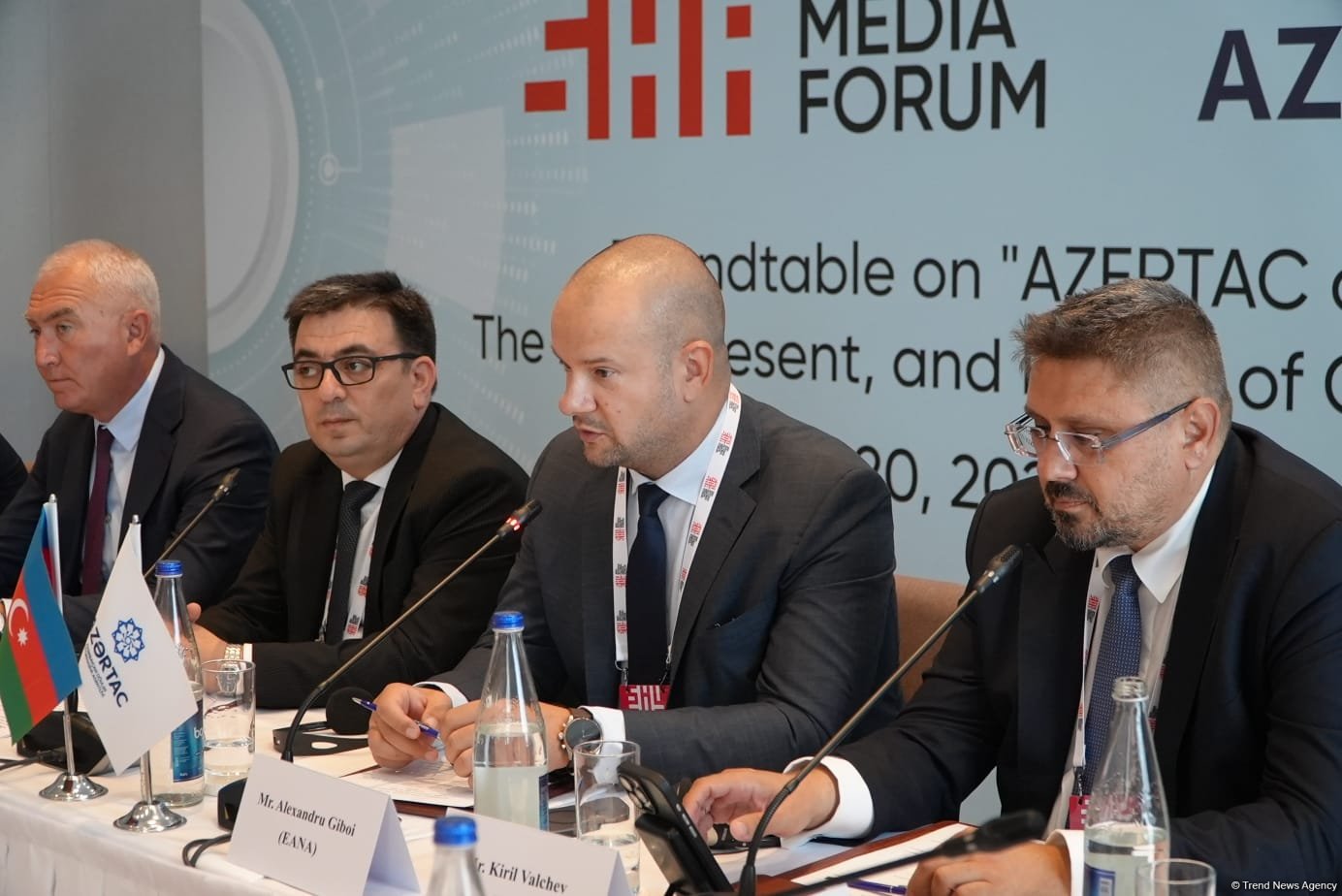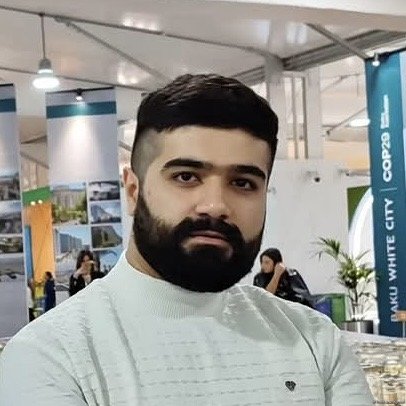LACHIN, Azerbaijan, July 20. The future of news agencies lies in their ability to adapt to rapid technological changes while strengthening cooperation, said Alexandru Giboi, Secretary General of the European Alliance of News Agencies (EANA), during a round table discussion titled “AZERTAC at 105: The Past, Present, and Future of Cooperation”, held in Lachin, Trend reports.
Giboi opened his remarks by emphasizing the need to look ahead rather than dwell on the past.
“The topic of today is cooperation. And although in the title we have past, present, and future, both due to time constraints and also due to the fact that it makes no sense at this point to look back, but to look forward, I would focus on the future,” he said. “The future is something which, as news agencies and media specialists, we all should look to”.
Speaking to media professionals gathered for the event marking AZERTAC’s 105th anniversary, Giboi underscored the unpredictability of the digital age and its impact on journalism.
“We live in times now in which, I believe, it's more difficult than ever to get a glimpse or a better understanding of what the future will look like due to extremely rapid advancements in technology, due to challenges with our partners and customers who are facing pressures from social platforms,” he said.
Giboi noted that even the present is marked by considerable strain, with news agencies confronting a fast-changing landscape.
“News agencies are facing challenging times in the present and uncertainty in the future. Of course, this doesn't mean that we shouldn't be optimistic. We shouldn't try to do our best to evolve in a way that keeps up with the times,” he stated. “It's very difficult. It's not easy to keep up with the times, the pace everything's going”.
Reflecting on the speed of technological disruption, Giboi recalled his own prediction about the transformative potential of artificial intelligence.
“If you remember, a bit more than three years ago, we didn't know about artificial intelligence at the level that we know today. I was discussing with someone at a forum some time ago, two years ago, and I said, look, it's possible that in two years' time we're going to have videos created automatically by software, and that would pose a huge challenge to the creative industry,” he recounted. “But it seems that I was close, and that type of challenge is now one that is faced also by news agencies worldwide”.
He pointed out that the impact of artificial intelligence varies from one media organization to another, depending on their readiness and level of integration.
“Of course, different as we are among ourselves, we face these challenges in different ways, and we meet them at different levels. For some news agencies, maybe artificial intelligence is not so important right now. For others, they might be already very much engaged in deploying it or using it in ways in their new jobs,” he said.
Giboi concluded by reaffirming the importance of future-oriented dialogue, especially within platforms like EANA and forums such as the one hosted by AZERTAC.







